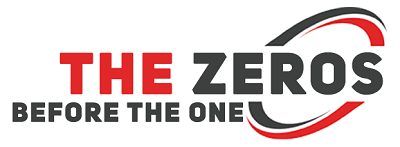Deciding to let go of your opioid, drug, or alcohol addiction is a significant achievement. When you start detoxing, your body feels better, and you feel more present.
However, to see the full effects of these benefits, you must overcome withdrawals, cravings, and sometimes even relapses. Recovery is a long and challenging journey that you might not want to undertake alone.
Therefore, therapy and counseling are integral to substance abuse treatment in Ames, IA. They help you escape cravings and work on your mental health. Read along to know more about what counseling can do for you and the options available.
Why Counselling?
Substance use disorder is not just a physical addiction. It is also greatly impacted by social and psychological factors. So, if you only focus on your physical dependence on alcohol or drugs, you might relapse because of all the other unaddressed causes.
Here are a few social triggers that could make you restart your journey.
- Immediate surroundings, visiting a related Ames neighborhood or street
- Stress caused by other parts of your life
- Meeting with friends who still use
These factors might make it impossible to imagine an everyday life again. You cannot always control where you go or who you run into. This is where therapy and counseling come into play.
The nature of your addiction is unique to you. Counseling helps you identify your patterns and discover efficient methods to break them. When you undergo counseling, you have more confidence in facing any triggers that life throws you.
Inpatient vs. Outpatient Treatments
Starting your recovery with a medical institution involves choosing between a residential or an outpatient program. Here is the difference.
Inpatient Program
An inpatient or residential recovery program will require you to check into a clinical facility in Iowa until you overcome your addiction. You will receive around-the-clock medical and emotional support and interact with other recovery patients.
A residential program requires you to inform your employers and plan for your family while away. You can communicate with your family depending on the rules at your facility.
However, you will spend most of your day in various treatments and therapies. The undivided attention can become the difference between another relapse and your recovery.
Outpatient Program
Sometimes, when patients leave residential facilities early and face daily life, they get sucked right back into their harmful routines. This is because it is much easier to exercise control in isolation.
An outpatient program is way less restrictive. You will be asked to spend a set number of hours per week at local centers in Ames. While detoxing can be more challenging, you will have individual and group counseling to assist you through the tough times.
If you have a mild addiction and are optimistic that you can overcome it without constant supervision, an outpatient program is ideal for you. You will not have to feel removed from your regular life and learn to cope in your typical environment.
Group vs. Individual Therapy
Individual therapy helps you learn about yourself better. If your addiction has caused other mental health disorders like depression, bipolar disorder, etc., therapy can assist you with navigating them independently.
In contrast, group therapy helps you more in your actual addiction recovery. When you hear other people going through similar problems, it reinforces your belief in doing better. Moreover, it provides a safe space for you to share and feel supported by your peers.
Often, opting for a local Ames peer-support group can be vital in changing your life for the better.
Addiction recovery can be a long and winding path. It is crucial that you feel supported in this journey and opt for good substance abuse treatment in Ames, IA. Keep your goal in sight and work towards fulfilling it for yourself and your family.













